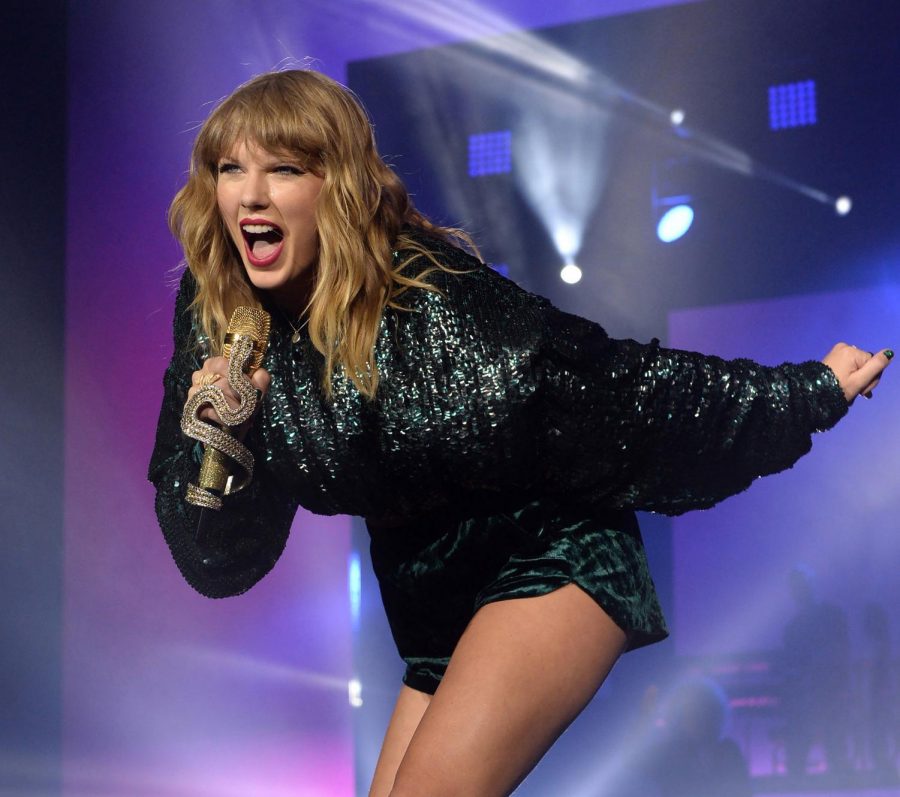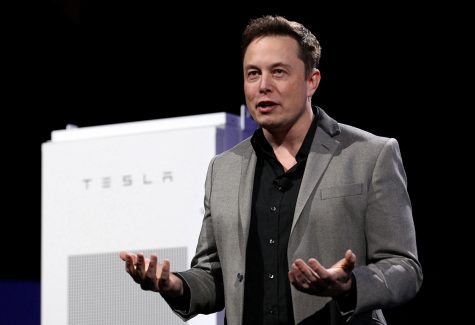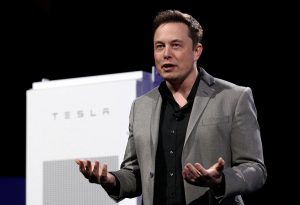Jaimes: Celebrity activism should be criticized on a case-by-case basis
Taylor Swift’s recent endorsement for Tennessee Democratic candidates showcased the right and wrong way to combine celebrity status and politics.
Taylor Swift performs on Dec. 10, 2017 in London. (Doug Peters/EMPICS Entertainment/Abaca Press/TNS)
October 15, 2018
The 2016 election saw tremendous support from celebrities such as Elton John, Lena Dunham, and Beyoncé — Hillary Clinton had a stronghold of celebrity endorsements. Her dramatic loss has brought an even larger “get out the vote” effort by celebrities in hopes to encourage younger generations to become politically motivated.
A general list featured from The Hill gathered a comprehensive explanation of each celebrities’ lackluster reasoning about why they supported the Democratic candidate. Many celebrities chose to hold fundraisers for Clinton but did not demonstrate a correct understanding of the politics their candidate supported. This is where Taylor Swift differs from her counterparts and reveals herself to be a role model among other celebrities.
RELATED: Clinton rally features celeb
In an Instagram post late last week, Swift used her platform to explain why her midterm-election vote would go to Phil Bredesen and Jim Cooper, citing reasons such as LGBTQ rights, racism, and equal pay for women. “As much as I have in the past and would like to continue voting for women in office, I cannot support Marsha Blackburn,” Swift said. Her lengthy post is very appreciated by those on the right who are continually disturbed to hear celebrities speak on topics on which they are not well-informed.
Kim Kardashian West recently received criticism for meeting with President Trump to discuss criminal-justice reform. This last sentence would sound absurd if it wasn’t for the fact that Kardashian West played a pivotal role in the release of Alice Marie Johnson, a nonviolent offender serving time in prison on a drug-related charge. After she spoke with the president, he was kind enough to commute Johnson’s sentence, allowing her to return to freedom after many years in prison.
In February 2017, Ashton Kutcher took to Capitol Hill to speak on behalf of his organization, Thorn: Digital Defenders of Children. His emotional statement included a story about the Department of Homeland Security enlisting the help of Thorn to locate a sexual predator. “We were the last line of defense … an ‘actor’ and his foundation were the potential last line of defense,” he said, acknowledging the criticisms of his organization. Thorn has identified 6,000 victims of child sex trafficking as of 2017.
Their efforts cannot be compared with those of Amy Schumer, a comedian who found herself arrested during protests of the Senate confirmation hearing of Justice Brett Kavanaugh. Schumer, whose form of activism was raising a closed fist into the air, can likely afford any legal fees she accumulated during her protest. She will suffer no consequences because of her actions and will go on to speak out against politicians but not work to advance her ideas in a meaningful way.
There are different types of celebrity activism. Stars such as Swift, Kardashian West, and Kutcher have proved that their efforts should not be dismissed just because of their celebrity status; we need to look deeper into the nature of every claim made by celebrities before we label them as illegitimate. Some celebrities may have opinions that disagree with ours but deserve respect if their ideas are supported by genuine concerns and facts.
RELATED: Leonard: LeBron uses his platform to do more than ‘shut up and dribble’





















